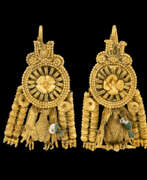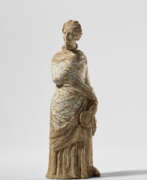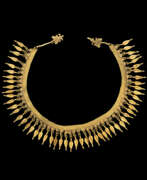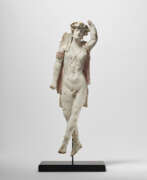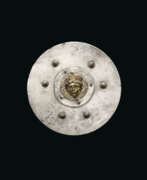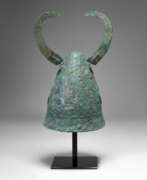Hellenistic period
.jpg)
Hellenistic period
The Hellenistic period, spanning from the death of Alexander the Great in 323 BC to the conquest of Egypt by Rome in 30 BC, marks a significant era in Mediterranean history. This period is characterized by the spread of Greek (Hellenic) culture, a fusion of Greek and Eastern elements, and the establishment of Greek-influenced realms across the Mediterranean and the Middle East.
Politically, this era saw the rise of powerful kingdoms such as the Macedonian, Seleucid, and Ptolemaic, which emerged from the breakup of Alexander's empire. These kingdoms were governed by absolute monarchs and were instrumental in the spread of Hellenic culture, even influencing regions as far as India. The political landscape of the Hellenistic period was marked by a blend of Greek and local cultures, leading to a unique fusion of traditions and practices.
Culturally, the Hellenistic period witnessed significant advancements in arts, literature, theatre, architecture, music, mathematics, philosophy, and science. This era is noted for its cosmopolitan nature, with Greek becoming the lingua franca of the ancient world. The period saw the rise of notable artistic movements and schools of thought, including New Comedy, Alexandrian poetry, Stoicism, Epicureanism, and Pyrrhonism. The Hellenistic world was a melting pot of diverse cultural influences, leading to significant developments in various fields.
Famous works of Hellenistic art include the Nike of Samothrace and the Winged Victory of Samothrace, both considered masterpieces of Hellenistic sculpture. The art of this period emphasized individuality and realism, marking a departure from the idealized forms of earlier Greek art. These artistic treasures from the Hellenistic period continue to captivate audiences and are showcased in museums around the world.
The end of the Hellenistic age came with the Roman conquests, culminating in the Battle at Actium in 31 BC, where the Roman Octavian defeated Mark Antony's Ptolemaic fleet. This victory led to the rise of the Roman Empire and marked the end of the Hellenistic period. Despite its relatively short duration, the cultural and intellectual legacy of the Hellenistic era has had a lasting impact on the arts and sciences, influencing subsequent generations.
For art enthusiasts and collectors, understanding the Hellenistic period is key to appreciating the complexities and richness of this influential era. To stay updated on exhibitions, sales, and auctions related to Hellenistic art and antiques, consider signing up for updates. This will ensure you are informed about the latest opportunities and discoveries in this fascinating field of history.
| Country: | Africa, Eastern Europe, Greece, Turkey |
|---|---|
| Start of the period: | 323 BC |
| End of the period: | 30 BC |

